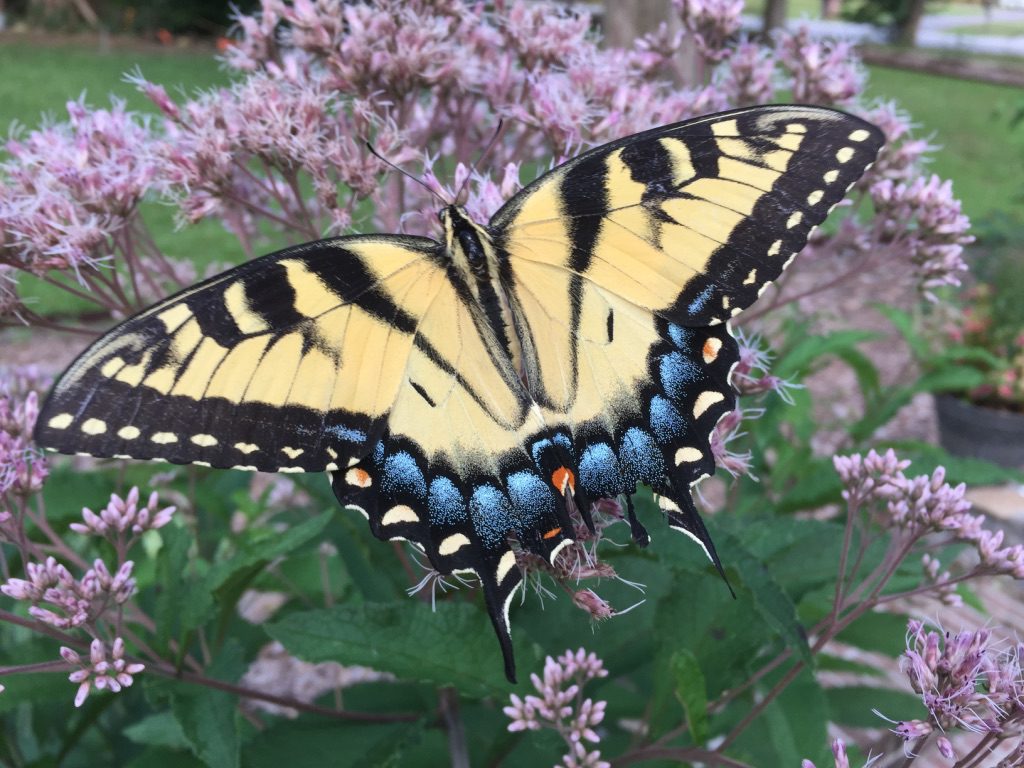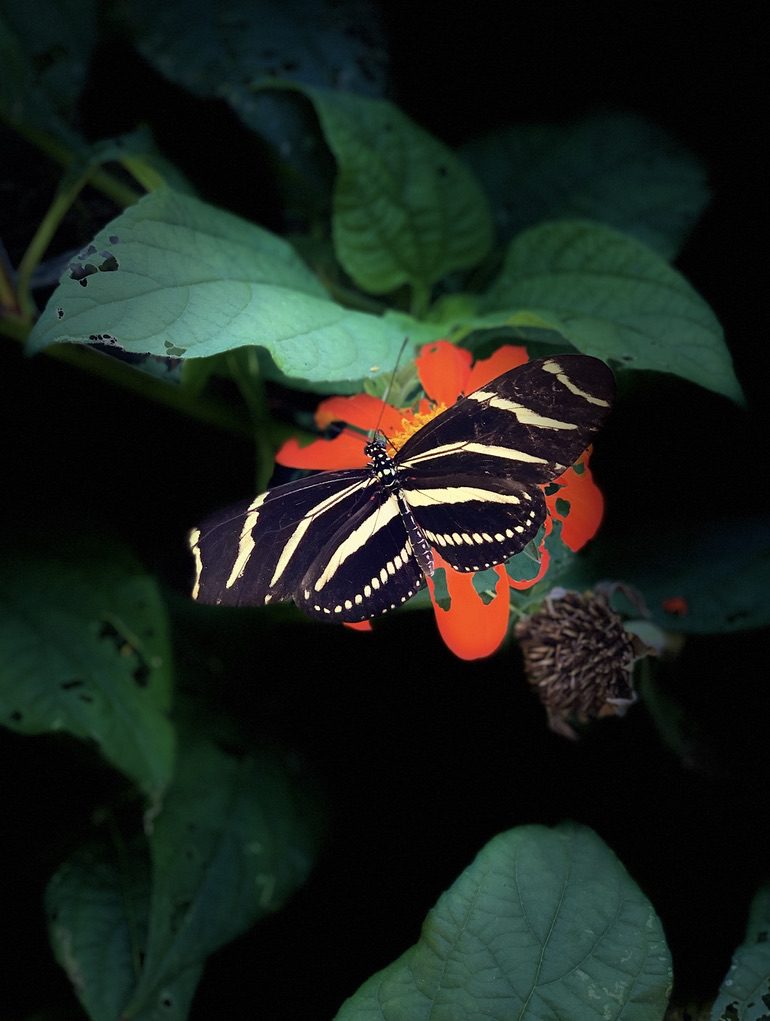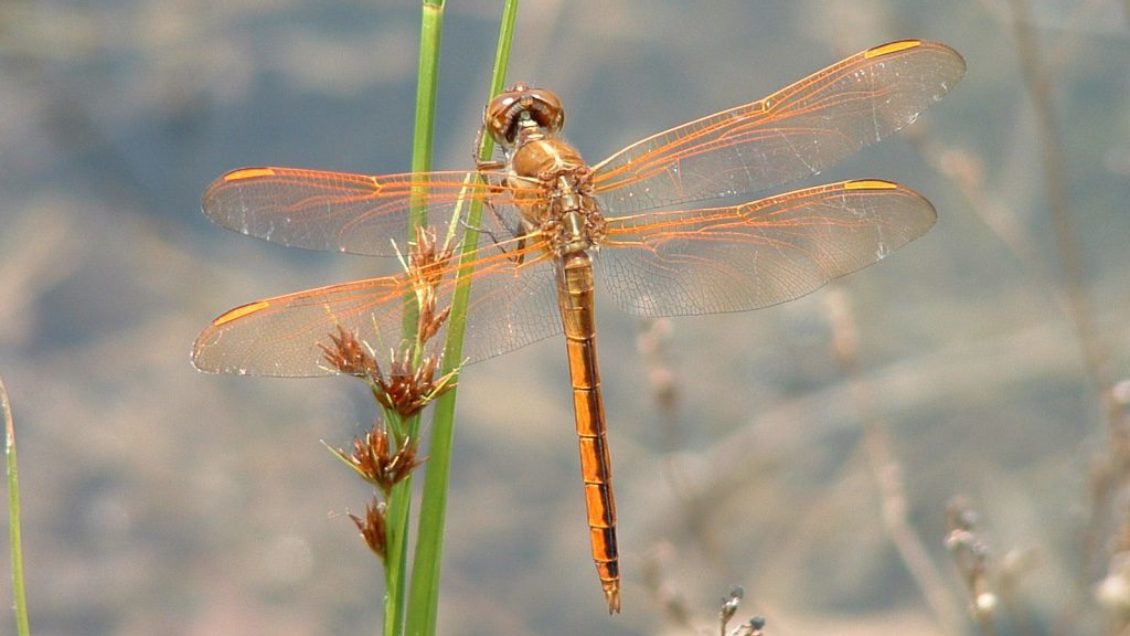As a master’s student at Clemson with dreams of becoming a naturalist, Austin Jenkins received this advice from an entomology professor: If you study insects, you’ll have an understanding for almost everything in the natural world.
Now, having taught for 15 years with Clemson Cooperative Extension’s S.C. Master Naturalist Program, Jenkins says his professor was exactly right.
“Insects are integral for an understanding of nature. Indeed, nature is mostly insects,” Jenkins said. “Insects occupy 80% of everything in the animal kingdom, and there are far more species of insects than there are plants, as well. So, they have been one of the more successful forces upon the Earth for quite some time, at least above water, and if you really want to understand the natural world, I think you have to have an understanding of insects.”

With that in mind, the S.C. Master Naturalist Program is now offering the online program “Entomology for the Naturalist” in an on-demand format. From the day of registration, participants have 120 days to view the lectures as many times as they wish before their access to the course ends.
Fully online and open to all, the course is a series of 30 video lectures, each approximately 30 minutes in length, and no textbook is needed as supplemental material is provided in an online format.
“Entomology for the Naturalist” will explore the evolution, natural history and characteristics of insects and their kin, including the numerous reasons for their incredible success. The course will survey the vast insect diversity, focusing on the groups of insects you will most likely encounter in nature.
Common South Carolina species from each group will be discussed, and the course will show how these different species interact with one another and the broader ecosystem by investigating insect ecology, covering symbiosis, pollination and social behavior.
With about 1 million described species, and more than three times that total estimated to exist, insects have their hands — or antennae, as it were — in virtually everything that takes place in the natural world.

“When you combine birds, fish, reptiles and amphibians together, there are only 43,000 species of those total,” said James Blake, S.C. Master Natural Program state director. “This course is all about educating the public, and we’ve been educating Master Naturalists on a statewide basis since 2007. They are required to take advanced training each year, and this course fits into that, but it is something that can go well beyond the Master Naturalist Program out to the general public, because it is a fascinating topic.”
And so, while their reputation isn’t generally a positive one among most humans, it’s easy to see the hugely significant role they play in nature.
“They do transmit some diseases to us and are pests in the home and things like that, but once you get away from that, there’s a dazzling array of really fantastic interactions that the insects are occupying,” Jenkins said.
“Just look at the more than 24,000 species of beetles in North America and you will see a remarkable array of colors, shapes, and sizes,” Blake said.
There will be no interaction with the instructor as part of the course, but there is a discussion board where students can interact. The registration fee for the course is $200. Participants must complete 26 of the 30 lectures to earn a certificate.
“The reason it’s called ‘Entomology for the Naturalist’ isn’t because it’s only for those people from our S.C. Master Naturalist Program; it’s not about how to kill bugs — there’s plenty of information on that out there — but it’s more about how to celebrate insects. It’s a window into the natural world that’s more ubiquitous than any other group. So, it enables people to start to celebrate nature.”
Registration is available here.
Get in touch and we will connect you with the author or another expert.
Or email us at news@clemson.edu

